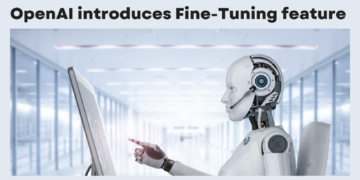Tech companies invested billions into AI’s research and development. Since OpenAI launched ChatGPT, the tech industry has been locked in a relentless race to develop cutting-edge AI models. This has led to investments in data centers, semiconductors, and talent acquisition. The promise of AI and the need to be relevant caused spending sprees. But is AI sustainable in the long run? Are we dealing with an AI bubble? Recent happenings around the tech industry and decreasing investor confidence says yes.
Investor Impatience: AI Bubble?
Wall Street is growing increasingly impatient with the slow pace of AI monetization. Companies like Amazon, Intel, and even Google and Microsoft have experienced stock price declines as investors question the value of their AI endeavors. The fear of another tech bubble is looming large. Analysts are scrutinizing the spending habits of these tech giants, demanding evidence of a clear path to profitability. The pressure is mounting to demonstrate tangible returns on investment. Some experts even suggest that the current level of AI spending is unsustainable and that a pullback is inevitable.
The Long-Term Vision
Tech leaders, however, remain steadfast in their belief in the transformative power of AI. They argue that building the necessary infrastructure and talent base requires significant upfront investment and that the fruits of their labor will be realized over the long term. Companies like Microsoft and Meta are projecting a 10–15-year timeline for substantial AI-driven revenue. This long-term perspective clashes with the short-term demands of the public market. Investors accustomed to rapid growth and consistent returns are finding it difficult to reconcile the massive spending with the relatively modest financial results.
The Road Ahead
The future of AI is uncertain. While the technology holds immense potential, the current focus on infrastructure and short-term gains could hinder its long-term development. Several scenarios are possible:
- A controlled slowdown: Tech companies might gradually reduce AI investments, focusing on more immediate returns while continuing to develop the technology.
- A sharp correction: A sudden loss of investor confidence could lead to a significant decline in AI valuations and spending.
- A breakthrough: A major AI breakthrough could reignite investor enthusiasm and justify the current level of investment.
Ultimately, the success of AI will depend on its ability to deliver tangible benefits to businesses and consumers. If AI can solve real-world problems and generate substantial revenue, the current hype might be justified. However, if the technology fails to live up to its promises, a correction is inevitable.
The coming months will be critical for the AI industry. As investors demand greater accountability, tech companies will need to demonstrate progress in turning AI investments into profitable ventures. The balance between short-term expectations and long-term vision will be crucial in determining the fate of this transformative technology.




























